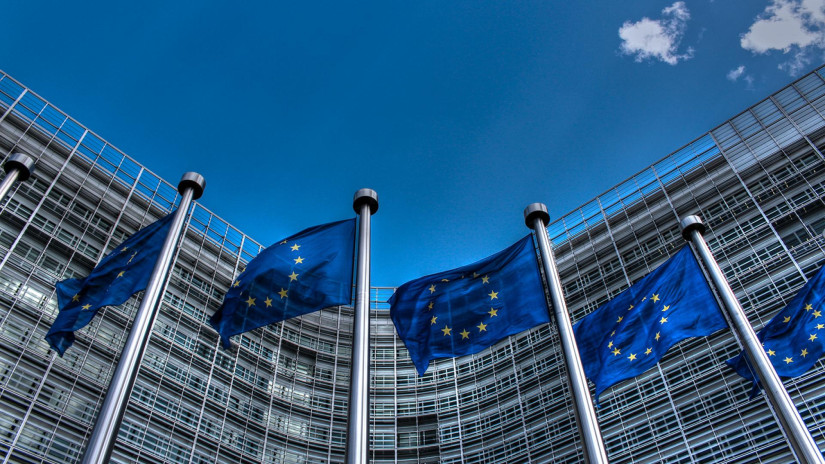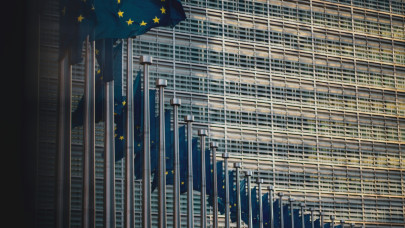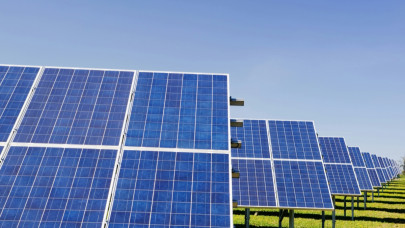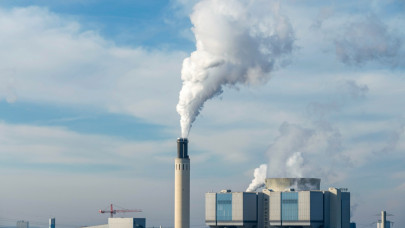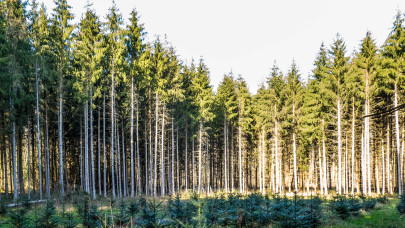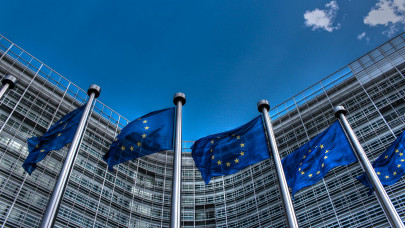Slovakia notified the Commission, under the Temporary Crisis and Transition Framework, a €1 billion scheme to support investments for the production of relevant equipment necessary to foster the transition to a net-zero economy.
Under this measure, the aid, up to an amount of €350 million per company, will take the form of direct grants, income tax reliefs, and transfers or leases of immovable property for a price below market value.
The measure will be open to companies producing relevant equipment, namely batteries, solar panels, wind turbines, heat pumps, electrolyzers, and equipment for carbon capture usage and storage, as well as key components designed and primarily used as direct input for the production of such equipment or related critical raw materials necessary for their production.
”This €1 billion Slovak scheme will provide exceptional investment aid in sectors strategic for the transition to a climate-neutral economy. This is an important step towards Europe's ambitious climate targets while ensuring that any potential competition distortions are kept to the minimum”, says Margrethe Vestager, Executive vice president in charge of competition policy.
The Commission found that the Slovak scheme is in line with the conditions set out in the Temporary Crisis and Transition Framework. In particular, the aid will incentivise the production of relevant equipment for the transition towards a net-zero economy; and will be granted no later than 31 December 2025.
The Commission concluded that the Slovak scheme is necessary, appropriate, and proportionate to accelerate the green transition and facilitate the development of certain economic activities, which are of importance for the implementation of the Green Deal Industrial Plan, in line with Article 107(3)(c) TFEU and the conditions set out in the Temporary Crisis and Transition Framework.
On this basis, the Commission approved the aid measure under EU State aid rules.
The Temporary Crisis and Transition Framework, as amended, provides for the following types of aid, which can be granted by Member States:
- Limited amounts of aid (section 2.1), in any form and granted until 30 June 2024, for companies affected by the current crisis or by the subsequent sanctions and countersanctions up to €280,000 and €335,000 in the agriculture, and fisheries and aquaculture sectors respectively, and up to €2.25 million in all other sectors;
- Liquidity support in the form of State guarantees and subsidized loans (sections 2.2 and 2.3). In exceptional cases and subject to strict safeguards, Member States may provide energy utilities for their trading activities with public guarantees exceeding 90% coverage, where they are provided as unfunded financial collateral to central counterparties or clearing members. These sections are applicable only until 31 December 2023 and have not been amended;
- Aid to compensate for high energy prices (section 2.4). The aid, which can be granted in any form in principle until June 2024, will partially compensate companies, in particular intensive energy users, for additional costs due to exceptional gas and electricity price increases. The individual aid amount may be calculated based on either past or present consumption, taking into account the need to keep market incentives to reduce energy consumption and to ensure the continuity of economic activities. In addition, Member States may provide support flexibly, including to particularly affected energy-intensive sectors, subject to safeguards to avoid overcompensation and to incentivize the reduction of the carbon footprint in case of aid amounts above €50 million. Member States are also invited to consider, in a non-discriminatory way, setting up requirements related to environmental protection or security of supply.
- Measures accelerating the rollout of renewable energy (section 2.5). Member States can set up schemes for investments in all renewable energy sources, including renewable hydrogen, biogas and biomethane, storage, and renewable heat, including through heat pumps, with simplified tender procedures that can be quickly implemented, while including sufficient safeguards to protect the level playing field. In particular, Member States can devise schemes for a specific technology, requiring support given the particular national energy mix. The conditions for the granting of aid to small projects and less mature technologies, such as renewable hydrogen, have been simplified by lifting the need for a competitive bidding process, subject to certain safeguards. Under such schemes, aid may be granted until 31 December 2025; after that date, the usual State aid rules will continue to apply, including in particular the corresponding provisions of the Climate, Energy and Environmental Aid Guidelines (CEEAG);
- Measures facilitating the decarbonization of industrial processes (section 2.6). To further accelerate the diversification of energy supplies, Member States can support investments to phase from fossil fuels, in particular through electrification, energy efficiency, and the switch to the use of renewable and electricity-based hydrogen which complies with certain conditions, with expanded possibilities to support the decarbonization of industrial processes switching to hydrogen-derived fuels. Member States can either set up new tender-based schemes, or directly support projects, without tenders, with certain limits on the share of public support per investment. Specific top-up bonuses are foreseen for small and medium-sized enterprises as well as for particularly energy-efficient solutions. In the absence of tenders, a simpler method has been introduced to determine the level of maximum support. Under such schemes, aid may be granted until 31 December 2025; after that date, the usual State aid rules will continue to apply, including in particular the corresponding provisions of the CEEAG;
- Measures aimed at supporting electricity demand reduction (section 2.7), in line with the Regulation on an emergency intervention to address high energy prices, until 31 December 2023;
- Measures to further accelerate investments in key sectors for the transition towards a net-zero economy (section 2.8), enabling investment support for the manufacturing of strategic equipment, namely batteries, solar panels, wind turbines, heat-pumps, electrolyzer, and carbon capture usage and storage as well as for production of key components and production and recycling of related critical raw materials. More specifically, Member States may until 31 December 2025 design simple and effective schemes, providing support capped at a certain percentage of the investment costs up to specific nominal amounts, depending on the location of the investment and the size of the beneficiary, with higher support possible for small and medium-sized enterprises (‘SMEs') as well as companies located in disadvantaged regions, to ensure that cohesion objectives are duly taken into account. Furthermore, in exceptional cases, Member States may provide higher support to individual companies, where there is a real risk of investments being diverted away from Europe, subject to several safeguards.
Sanctioned Russian, Belarussian, and Iranian entities in respect of actions undermining or threatening the territorial integrity, sovereignty, and independence of Ukraine are excluded from the scope of these measures.
The Temporary Crisis and Transition Framework complement the ample possibilities for Member States to design measures in line with existing EU State aid rules. For example, EU State aid rules enable Member States to help companies cope with liquidity shortages and need urgent rescue aid. Furthermore, Article 107(2)(b) of the Treaty on the Functioning of the European Union enables Member States to compensate companies for the damage directly caused by an exceptional occurrence, such as those caused by the current crisis.
The non-confidential version of the decision will be made available under the case number SA.109989 in the State aid register on the Commission's competition website once any confidentiality issues have been resolved. New publications of State aid decisions on the internet and in the Official Journal are listed in the Competition Weekly e-News.

